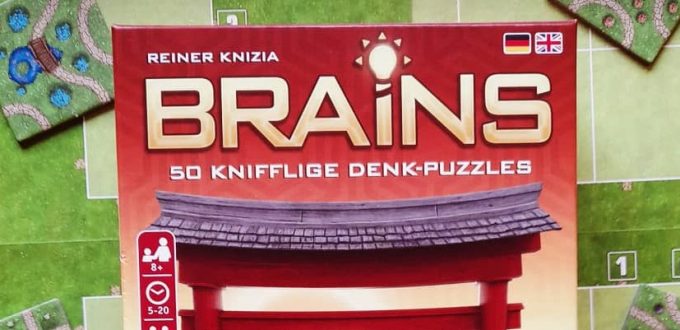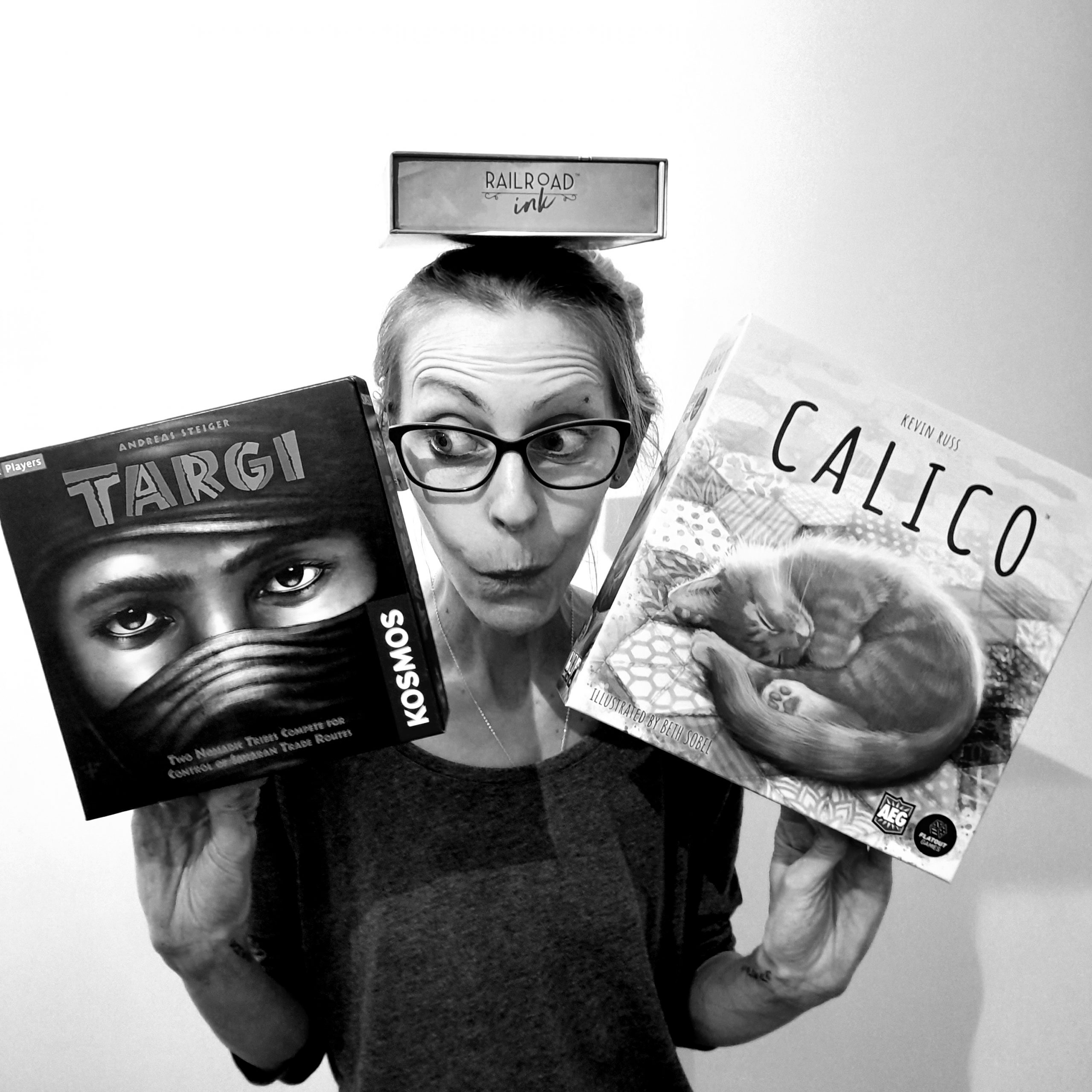Publisher: Pegasus Spiele
Designer: Reina Knizia
Artist: Andreas Resch
Release date: 2016
1 Player
Age: 8+
1 – 5 mins per puzzle
Favouritefoe score:7.5/10
Feeling brainy? I’d love to say that I fire on all cylinders on a daily basis, but that would be fibbing! It doesn’t stop me loving strategy games, however, so designer Reina Knizia is always on my radar. He is a master of puzzles and challenging play. As soon as anything new pops up by him, I am hot on the trail on BGG. And, having only been a hobby board gamer for just over a year, there is a huge back catalogue of his games (600+ at last count!) to satisfy my cravings.
Surprising myself perhaps most of all, I have also become a very eager solo gamer. Being able to sit and focus on a game without pressure or pace is one of my happy places. And so, when I learned that Reina Knizia had a solo series of games called “Brains” which happen to be tile layers, I simply couldn’t help myself.
Peaceful Looking Puzzles!
Just like its namesake, Brains Japanese Garden ((published by Pegasus Spiele) is understated in its design, but will have you thinking hard in short, sharp bursts. With only 7 tiles and 50 sheets of paper in the entire game, it doesn’t look much. But it’s what you have to do with those tiles and paper that counts!
The object of the game is simple; to lay out the perfect Japanese garden using some or all of the 7 tiles provided. How you do it is not so simple. Whilst each one of those sheets (10 for each level of difficulty) contains instructions, they must be followed to the letter. Only then will your design is to hit the correct combination of aesthetic, spiritual, and philosophical ideals. Miss any of them, and your garden will be more compost heap that cool green space.

Zen Master Mazes!
You think matching symbols or linking up paths on the tiles to those on the edges of the squares printed on the level sheet will be easy. Certainly, the first few rounds are. Requiring only one or two tiles, working out how to link up the correctly coloured flowers and ensure paths contain the right number of bridges is a no-brainer.
But they are just the warm-up. Whilst the game-play doesn’t change, you move past the tenth sheet and things suddenly get trickier. No longer are you instantly spotting which tiles you need, and how to orientate them. No, with more paths needing to cross a specified number of tiles, more bridges, and more of all the other features your garden needs, the burn starts to build.
And this is in a large part down to your mind rebelling against the task. “7 tiles. Only 7 tiles”. “This should be simple. Why is it not working?” . And that frustration is clever in its effect. Because, if you are like me, after an initial refusal to go on, you will be back at the table. You won’t be able to help yourself. You will have to finish that level. To master it. To not let a 7 tile puzzle beat you. After all, you can handle massive, sprawling, complex euro-games. You can lead the pack in racing games. You can deduce the culprit in bluffing games. So you will NOT let a 7 tile puzzle beat you!
[Note: not that you will want to use it but the box helpfully contains a booklet which, on one side contains hints for each level, and the solutions on the other……you know, just in case you want to confirm your puzzling prowess! Just don’t look at the next one on the sheet!]
A Gentle Burn!
Don’t get me wrong, Brains Japanese Garden won’t be the hardest puzzle you ever do. In fact, it might not even be the trickiest one you do this week. But it is a small, interesting solo challenge that increases in difficulty as your confidence in your skills grow.
The level 5 sheets are not easy for someone who is as spatially challenged as me, and the fact it only has 7 tiles really amps up the “I should be able to do this” frustration factor. Budget wise, it won’t burn a hole in your pocket either. Indeed, it would probably make a really good stocking filler for brain teaser fan friends and family members (if you’re already thinking ahead that far!). And if you like Japanese Garden, there are others in the series (Magic Potion (solo), Hidden Treasure, and Castles and Dragons (2-4 players)) to try!






